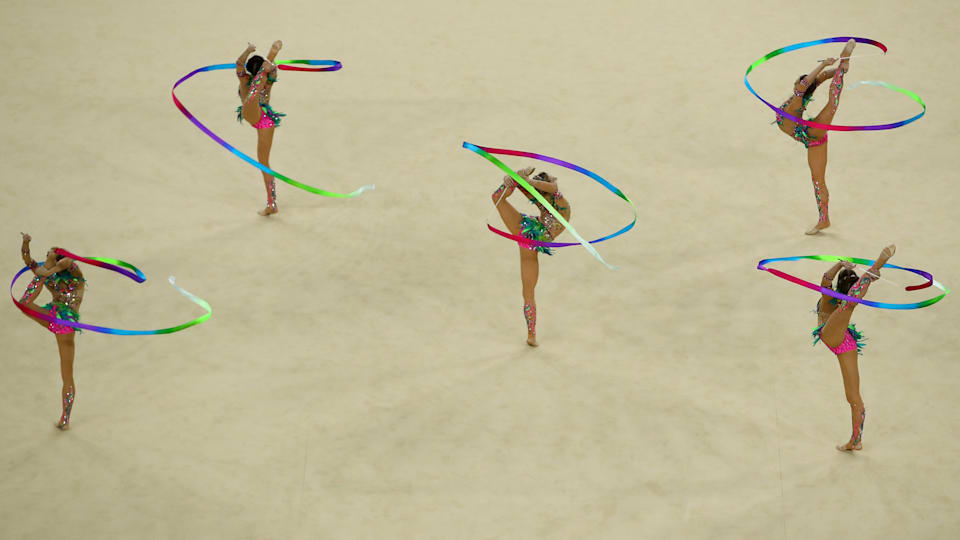
The champions’ dynamic performance in their second routine allowed them to leapfrog early pacesetters Spain and they topped the standings with 36.233. Spain had high hopes of ending Russia’s reign as they were leading at the half-way point of the competition following an exquisite display with five ribbons. They eventually claimed silver. Bulgaria, world champions in 2014, won bronze.
“We were concerned after the first rotation when everything did not go smoothly,” said Russia's Anastasiia Tatareva. “There was a collision and one of the ribbons ended up on the floor. That hiccup forced us to pull ourselves together and do our best to beat our rivals.”
The competition came alive on the second day, when Russia returned for their routine with two hoops and six clubs. Diving through the hoop, and using their feet to catapult it to fellow gymnasts were popular moves. They drew a rapturous applause as they each arched one leg back to perform a synchronised fast-paced Biellmann spin.
“Honestly for us, this silver medal tastes like a gold,” Spanish gymnast Alejandra Quereda said, calling Spain’s return to the podium after a 20-year absence ‘extraordinary’. “As we saw yesterday, I don’t think anyone is invincible. The Russians have a very strong rhythmic gymnastics team, but we are getting a lot better. I think we are getting to a level similar to theirs.”
Hristiana Todorova, member of Bulgaria’s bronze-winning team, said they valued their bronze just as much as gold: “I can’t describe the emotions because it’s very emotional at this moment. This was our biggest dream and we made it come true. We are very, very happy. It’s very hard to get a medal in the Olympics so it doesn’t matter that it’s bronze.”
For the fifth successive Olympics, Russia completed the rhythmic gymnastics double after Margarita Mamun won the individual all-around gold. A gold for Spain in the group all-around when it was first introduced to the Olympic programme in Atlanta 1996 is the only time the Russians have been beaten in this event.
